What is global health policy?
According to the World Health Organization (WHO), health policy defines health goals at the international, national or local level and specifies the decisions, plans and actions to be undertaken to achieve these goals. Global health policy focuses on implementing solutions to achieve health goals on larger stages: global and national health systems, including medical care and public health services. It analyses key economic, political, environmental and social factors and how they relate to medical issues and the spread of disease.
Health policy uses evidence and political will to attain authoritative public agreement and interventions. It aims to:
- Clarify the values on which it is based
- Decide a vision for the future
- Establish objectives and priorities to achieve that vision
- Set short-term and medium-term targets and milestones
- Advise various groups of their expected roles
- Work towards better health outcomes
Developing public health policy is a highly complex process. As it addresses health challenges of interdependent nations, it involves the allocation of resources across countries and organisations – often featuring multiple cultures, different levels of development and capacity, and coexistent values. It seeks collaboration between numerous stakeholders – all with diverse needs and interests – identifying both the challenges to be faced and effective, feasible methods through which to achieve them.
A closer look at international health policy and global healthcare
As the United Nation Sustainable Development Goals recognise, not all countries have the same access to high quality medical care. International policymaking aims to repair and reinforce health systems and address key societal and environmental issues that result in some sections of the global population suffering more than others.
For 2021, WHO outlined 10 global health topics that are of key importance:
- Build global solidarity for worldwide health security
- Speed up access to COVID-19 tests, medicines and vaccines
- Advance health for all
- Tackle health inequalities
- Provide global leadership on science and data
- Revitalise efforts to tackle communicable diseases
- Combat drug resistance
- Prevent and treat non-communicable diseases and mental health conditions
- Build back better
- Act in solidarity
Organisations such as WHO, together with its partners, strive to bring countries together; their aim is to engage and collaborate with all levels of government, not just the health sector. Only in this way can it build long-lasting, robust health systems and healthy populations.
On a national level, policies can be more specifically tailored to the needs of a country or group of countries. For example, in Northern Ireland, public healthcare policies include:
- Alcohol and drugs misuse – includes guidelines with a recommended weekly alcohol intake threshold, Minimum Unit Pricing, and alcohol and health issues such as pregnancy
- Healthy Start scheme – a scheme to provide a ‘nutritional safety net’ to pregnant women and children under four in low-income families
- Sexual health promotion – aims to improve, protect and promote the sexual health and wellbeing of the population
- Tobacco control – aims to reduce the number of people smoking, increase the number of smokers quitting, and protect the population from second-hand smoke
- Health in All Policies – a practical tool to judge the potential health effects of policies across all sectors
Government policies may also extend to health insurance. For example, the United Kingdom government offers the UK Global Health Insurance Card (GHIC). For those eligible, a GHIC helps to manage primary healthcare costs when travelling – enabling citizens to either access state healthcare for free or at a reduced cost. International health insurance and its particulars will vary across countries and insurers.
Coronavirus and international health policy
To find an example of a global health issue, we only have to look as far as the current COVID-19 pandemic.
The ongoing struggle to control the virus and provide people with vital care continues to challenge health services – and has laid bare the inadequacies and inequalities of the world’s healthcare systems. Furthermore, the virus also threatens to set back critical health progress in areas such as fighting infectious diseases and improving children’s health.
As well as the widely known policies regarding vaccination programmes and status, travel and quarantine restrictions, local and national lockdowns and health and safety measures to reduce transmission, a number of policy recommendations have arisen as a result. The 16 Health System Policy Recommendations to Respond to COVID-19, produced by WHO/Europe, are a clear indication of how complex and interconnected policy responses can be. The recommendations include: assess and mitigate potential financial barriers to accessing care; protect the physical health of frontline health workers; and bolster capacity of essential public services to enable emergency response.
Through these actions, the global population – particularly people living in low-income countries, countries with human rights issues, or areas where access to healthcare is difficult or non-existent – will be better protected from future viruses.
Open doors with master’s-level knowledge of global health policy
Numerous employers are looking for people with the right skillset and knowledge of global health.
As well as international health organisations, specialist skills will be transferable to government agencies, NGOs, disaster-relief organisations, international aid and development agencies, refugee health organisations and research and academic institutions.
Organisations are looking for people with experience of:
- Healthcare, including knowledge of epidemiology, human behaviour and healthcare systems
- Soft skills, including teamwork, leadership, communication and cultural intelligence
- Critical thinking, including research and analysis, interrelation of healthcare and non-healthcare factors – such as social determinants of health – and problem solving
Roles are varied, from nursing to working as a health policy advisor, health policy analyst, health promotion official, health programme manager and more.
Equip yourself for transformational leadership
The Royal College of Nursing emphasises the value of advanced nursing qualifications and a professional network for career progression. Gain all this and more with the University of Sunderland’s online MSc Nursing Studies programme.
Whether your focus is progressing to more senior healthcare roles or deepening your understanding of your current scope of practice, our experts will equip you with the skills and knowledge to succeed. Your studies will encompass teaching and learning, leadership, practice development and improvement, leading you to specialise in areas of interest and hone your ability to handle complex and unpredictable healthcare situations.





